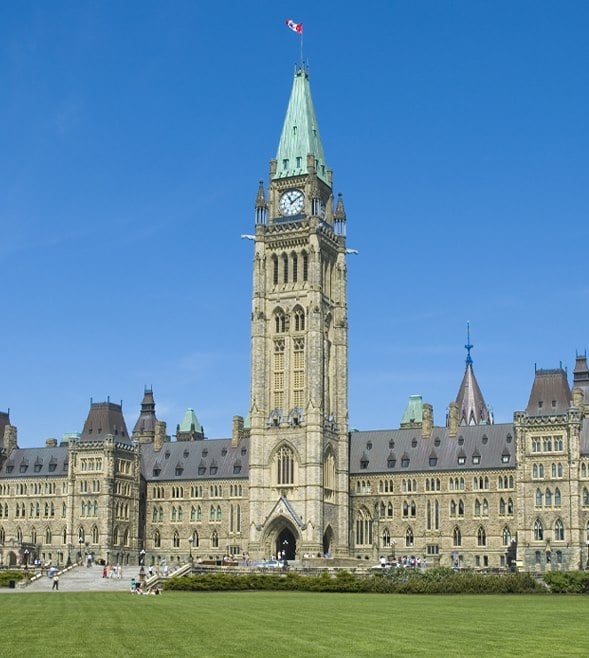-
Financial reporting and accounting advisory services
You trust your external auditor to deliver not only a high-quality, independent audit of your financial statements but to provide a range of support, including assessing material risks, evaluating internal controls and raising awareness around new and amended accounting standards.
-
Accounting Standards for Private Enterprises
Get the clear financial picture you need with the accounting standards team at Doane Grant Thornton LLP. Our experts have extensive experience with private enterprises of all sizes in all industries, an in-depth knowledge of today’s accounting standards, and are directly involved in the standard-setting process.
-
International Financial Reporting Standards
Whether you are already using IFRS or considering a transition to this global framework, Doane Grant Thornton LLP’s accounting standards team is here to help.
-
Accounting Standards for Not-for-Profit Organizations
From small, community organizations to large, national charities, you can count on Doane Grant Thornton LLP’s accounting standards team for in-depth knowledge and trusted advice.
-
Public Sector Accounting Standards
Working for a public-sector organization comes with a unique set of requirements for accounting and financial reporting. Doane Grant Thornton LLP’s accounting standards team has the practical, public-sector experience and in-depth knowledge you need.
-
Tax planning and compliance
Whether you are a private or public organization, your goal is to manage the critical aspects of tax compliance, and achieve the most effective results. At Doane Grant Thornton, we focus on delivering relevant advice, and providing an integrated planning approach to help you fulfill compliance obligations.
-
Research and development and government incentives
Are you developing innovative processes or products, undertaking experimentation or solving technological problems? If so, you may qualify to claim SR&ED tax credits. This Canadian federal government initiative is designed to encourage and support innovation in Canada. Our R&D professionals are a highly-trained, diverse team of practitioners that are engineers, scientists and specialized accountants.
-
Indirect tax
Keeping track of changes and developments in GST/HST, Quebec sales tax and other provincial sales taxes across Canada, can be a full-time job. The consequences for failing to adequately manage your organization’s sales tax obligations can be significant - from assessments, to forgone recoveries and cash flow implications, to customer or reputational risk.
-
US corporate tax
The United States has a very complex and regulated tax environment, that may undergo significant changes. Cross-border tax issues could become even more challenging for Canadian businesses looking for growth and prosperity in the biggest economy in the world.
-
Cross-border personal tax
In an increasingly flexible world, moving across the border may be more viable for Canadians and Americans; however, relocating may also have complex tax implications.
-
International tax
While there is great opportunity for businesses looking to expand globally, organizations are under increasing tax scrutiny. Regardless of your company’s size and level of international involvement—whether you’re working abroad, investing, buying and selling, borrowing or manufacturing—doing business beyond Canada’s borders comes with its fair share of tax risks.
-
Transfer pricing
Transfer pricing is a complex area of corporate taxation that is concerned with the intra-group pricing of goods, services, intangibles, and financial instruments. Transfer pricing has become a critical governance issue for companies, tax authorities and policy makers, and represents a principal risk area for multinationals.
-
Succession & estate planning
Like many private business owners today, you’ve spent your career building and running your business successfully. Now you’re faced with deciding on a successor—a successor who may or may not want your direct involvement and share your vision.
-
Tax Reporting & Advisory
The financial and tax reporting obligations of public markets and global tax authorities take significant resources and investment to manage. This requires calculating global tax provision estimates under US GAAP, IFRS, and other frameworks, and reconciling this reporting with tax compliance obligations.

-
Transactions
Our transactions group takes a client-centric, integrated approach, focused on helping you make and implement the best financial strategies. We offer meaningful, actionable and holistic advice to allow you to create value, manage risks and seize opportunities. It’s what we do best: help great organizations like yours grow and thrive.
-
Restructuring
We bring a wide range of services to both individuals and businesses – including shareholders, executives, directors, lenders, creditors and other advisors who are dealing with a corporation experiencing financial challenges.
-
Forensics
Market-driven expertise in investigation, dispute resolution and digital forensics
-
Cybersecurity
Viruses. Phishing. Malware infections. Malpractice by employees. Espionage. Data ransom and theft. Fraud. Cybercrime is now a leading risk to all businesses.
-
Consulting
Running a business is challenging and you need advice you can rely on at anytime you need it. Our team dives deep into your issues, looking holistically at your organization to understand your people, processes, and systems needs at the root of your pain points. The intersection of these three things is critical to develop the solutions you need today.
-
Creditor updates
Updates for creditors, limited partners, investors and shareholders.

-
Governance, risk and compliance
Effective, risk management—including governance and regulatory compliance—can lead to tangible, long-term business improvements. And be a source of significant competitive advantage.
-
Internal audit
Organizations thrive when they are constantly innovating, improving or creating new services and products and envisioning new markets and growth opportunities.
-
Certification – SOX
The corporate governance landscape is challenging at the best of times for public companies and their subsidiaries in Canada, the United States and around the world.
-
Third party assurance
Naturally, clients and stakeholders want reassurance that there are appropriate controls and safeguards over the data and processes being used to service their business. It’s critical.
-
 Assurance Important changes coming to AgriInvest in 2025AgriInvest is a business risk management program that helps agricultural producers manage small income declines and improve market income.
Assurance Important changes coming to AgriInvest in 2025AgriInvest is a business risk management program that helps agricultural producers manage small income declines and improve market income. -
 ASPE Sec. 3041 Agriculture Understanding and applying the new ASPE Section 3041 AgricultureThe Canadian Accounting Standards Board (AcSB) has released new guidance on recognizing, measuring and disclosing biological assets and the harvested products of bio assets.
ASPE Sec. 3041 Agriculture Understanding and applying the new ASPE Section 3041 AgricultureThe Canadian Accounting Standards Board (AcSB) has released new guidance on recognizing, measuring and disclosing biological assets and the harvested products of bio assets. -
 Tax alert Agricultural Clean Technology ProgramThe Agricultural Clean Technology Program will provide financial assistance to farmers and agri-businesses to help them reduce greenhouse gas (GHG) emissions.
Tax alert Agricultural Clean Technology ProgramThe Agricultural Clean Technology Program will provide financial assistance to farmers and agri-businesses to help them reduce greenhouse gas (GHG) emissions. -
 Tax alert ACT Program – Research and Innovation Stream explainedThe ACT Research and Innovation Stream provides financial support to organizations engaged in pre-market innovation.
Tax alert ACT Program – Research and Innovation Stream explainedThe ACT Research and Innovation Stream provides financial support to organizations engaged in pre-market innovation.
-
Builders And Developers
Every real estate project starts with a vision. We help builders and developers solidify that vision, transform it into reality, and create value.
-
Rental Property Owners And Occupiers
In today’s economic climate, it’s more important than ever to have a strong advisory partner on your side.
-
Real Estate Service Providers
Your company plays a key role in the success of landlords, investors and owners, but who is doing the same for you?

-
Mining
There’s no business quite like mining. It’s volatile, risky and complex – but the potential pay-off is huge. You’re not afraid of a challenge: the key is finding the right balance between risk and reward. Whether you’re a junior prospector, a senior producer, or somewhere in between, we’ll work with you to explore, discover and extract value at every stage of the mining process.
-
Oil & gas
The oil and gas industry is facing many complex challenges, beyond the price of oil. These include environmental issues, access to markets, growing competition from alternative energy sources and international markets, and a rapidly changing regulatory landscape, to name but a few.

Updated: June 21, 2024
Owners of Canadian residential property should be aware of the Underused Housing Tax (UHT), which came into effect on January 1, 2022. This tax requires affected owners to file a UHT return with the Canada Revenue Agency (CRA) annually for each reportable property. Even if an affected owner meets an exception and isn’t required to pay the UHT, they must still file a return to declare the exemption.
The 2023 federal Fall Economic Statement (FES 2023) proposed additional UHT relief on November 21, 2023 which was enacted as of June 20, 2024. Certain types of owners would become excluded from UHT obligations starting with 2023 UHT returns. Additionally, the minimum late-filing penalties would be significantly reduced.
Generally, an “affected owner” must file their annual UHT returns by April 30 of the following calendar year. If the UHT applies, affected owners will be required to remit payment by April 30.
The UHT is calculated as 1% of the taxable value of the property as of December 31 of the previous year. The taxable value equals the greater of the value for property tax purposes and the most recent sales price at year end. However, the owner may be able to elect to use fair market value if they obtain a qualifying appraisal report.
Note that affected owners with multiple residential properties must file separate UHT returns for each property, and if you are a joint owner, each affected owner must file separate UHT returns.
What types of properties are reportable?
Under the UHT rules, the definition of “residential property” is narrower than the ordinary meaning and generally includes:
- Detached houses or similar buildings with no more than three units (including cottages, cabins, and chalets unless they are considered commercial property)
- Semi-detached houses, row-house units, most residential condominium units, and similar separate or divided premises such as a coach house or laneway house
Other types of buildings are generally not considered residential property for UHT purposes, such as high-rise apartment buildings, hotels and quadruplexes.
Who is an affected owner?
Under the UHT rules, an affected owner is generally the title holder of the residential property under the applicable land registration system. However, life tenants, life lease holders or a person that has continuous possession of the land on which the residential property sits under a long-term lease may also be considered an affected owner.
Affected owners of a residential property under the current rules include but may not be limited to:
- Privately held corporations that are incorporated in Canada
- Corporations incorporated outside of Canada
- Individuals who are non-residents (and aren’t citizens or permanent residents of Canada)
- Partnerships (any partners identified in the land registry system would be affected owners)
- Trustees or trusts (subject to some exceptions), including bare trusts.
Who is an excluded owner?
Property owners that are generally excluded from any UHT filing obligations or liabilities include:
- Most Canadian citizens and permanent residents of Canada (who may still have obligations if they’re a trustee or a partner of a partnership)
- Publicly-listed Canadian corporations if their shares are listed on a Canadian stock exchange on December 31
- Registered charities and Indigenous governing bodies or their wholly-owned corporations
- Cooperative housing corporations, hospital authorities, municipalities, public colleges, a school authorities and universities (as defined in the Excise Tax Act)
- A trustee of a mutual fund trust, real estate investment fund trust or specified investment flow-through trust
In addition, specified Canadian corporations, trustees of a specified Canadian trust and partners of a specified Canadian partnership (as defined by the UHT Act) became “excluded owners” instead of “affected owners”, effective January 1, 2023. As a result, these types of owners generally became exempt from UHT fling obligations starting with 2023 UHT returns. Accordingly, such owners were still required to file their 2022 UHT returns by the April 30, 2024 administrative deadline, or penalties apply.
When and how can you assert an exemption?
An affected owner is liable for the UHT unless they’re eligible to claim an exemption based on:
- location and use of the property
- availability of the property
- occupant of the property
- type of owner
Affected owners must file their UHT returns to claim the exemption. Furthermore, the owner must keep sufficient evidence to support the exemption or the CRA may deny it.
What are the non-compliance penalties?
Significant penalties apply if the affected owner fails to file their return even one day past the April 30 deadline. However, CRA provided transitional relief for 2022 UHT returns, provided an affected owner filed their 2022 UHT return(s) by April 30, 2024 and paid any UHT owing by that date. Late-filing penalties are generally the greater of:
- $2,000 for non-individuals and $1,000 for individuals
- the sum of:
- 5% of the UHT for the year
- 3% of the UHT for the year multiplied by the number of months the return is late
However, where the UHT return is filed later than December 31 of the following year, certain types of UHT exemptions are denied for penalty calculation purposes.
Interest would also apply to late payments.
Affected owners may be subject to additional penalties for failing to provide supporting documentation when required, gross negligence, and misrepresentation.
Furthermore, where a non-resident sells a Canadian residential property and they’re non-compliant with UHT obligations, the CRA can deny a request for a certificate of compliance under s.116 of the Income Tax Act.
How do you file?
Affected owners file their returns using Form UHT-2900, Underused Housing Tax Return and Election Form, which can be found here on the CRA website.
Affected owners need a valid CRA tax identification number, even if they’re claiming an exemption. If you need to apply for one of these numbers, it’s important to do so in advance as the registration process takes time. Note that:
- Canadian citizens and permanent residents who need to file (e.g., as a trustee or partner) require a valid Social Insurance Number (SIN)
- non-residents who need to file require a valid SIN or Individual Tax Number (ITN)
- other taxpayers (e.g., corporations) require a business number and must register for a UHT program account
Don’t forget about provincial or local vacancy taxes
The federal UHT is part of a growing trend of jurisdictions in Canada to implement taxes on non-residents and foreign investment in residential property. The UHT joins other declarative property taxes in Canada such as British Columbia’s provincial speculation and vacancy tax and other vacancy taxes in Vancouver, Toronto and Ottawa.
These types of tax regimes are increasing — all owners need to review the taxes and levies that apply in the jurisdictions of their properties. Owners should also ensure they complete all appropriate filings and claim any applicable exemptions. Each tax regime is unique and even though not all properties or owners are subject to taxation, some may require declarations or filings to claim an exemption.
Watch this explainer video, where Indirect Tax Leader, Sarah Noftell, discusses key points you need to know about the UHT and how it could affect you.
Have questions?
Navigating the UHT legislation is complex—but you’re not alone. Contact your local advisor or reach out to us here.
Get in touch with a Doane Grant Thornton advisor today.
Disclaimer
The information contained herein is general in nature and is based on proposals that are subject to change. It is not, and should not be construed as, accounting, legal or tax advice or an opinion provided by Grant Thornton LLP to the reader. This material may not be applicable to, or suitable for, specific circumstances or needs and may require consideration of other factors not described herein.
Get the latest information in your inbox.
Subscribe to receive relevant and timely information and event invitations.


